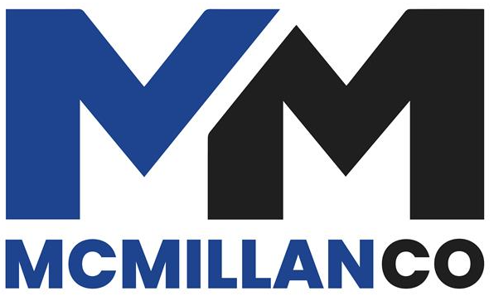In the world of manufacturing and industrial applications, gaskets play a crucial role in sealing and protecting mechanical components. To perform effectively, these gaskets often need adhesives that ensure a secure and durable seal. With various types of adhesives available, choosing the right one can be challenging. At MCMILLANCO, we understand the nuances of gasket applications and the critical importance of using the best adhesive for the job. In this blog, we’ll guide you through the different types of adhesives used in gasket applications, helping you make an informed choice for your project.
Why Adhesives Matter in Gasket Applications
Adhesives for gaskets aren’t just about sticking materials together—they help provide the crucial sealing properties necessary to keep out fluids, gases, and other contaminants. The right adhesive can enhance the gasket’s performance, ensuring longevity and reliability in demanding conditions.
Types of Adhesives for Gaskets
1. Acrylic Adhesives
Characteristics: Acrylic adhesives are popular for their versatility and strong bond strength. They can bond with a variety of materials, including metals, plastics, and rubbers.
Best for: Applications requiring high durability and resistance to temperature fluctuations and environmental exposure.
Advantages: Acrylic adhesives provide excellent resistance to moisture, chemicals, and UV light, making them suitable for outdoor and automotive gasket applications.
Considerations: Not ideal for applications involving exposure to high heat for prolonged periods, as their bond strength may diminish.
2. Silicone Adhesives
Characteristics: Silicone adhesives are known for their excellent thermal stability and flexibility, which makes them perfect for high-temperature applications.
Best for: Gaskets used in environments with extreme temperature variations, such as engine components or industrial machinery.
Advantages: They can maintain their properties even in extreme temperatures, ranging from -75°F to 500°F. Silicone adhesives also resist water, oil, and certain chemicals.
Considerations: Silicone adhesives may not offer the same bond strength as some other adhesive types, especially on certain substrates like metals.
3. Rubber-Based Adhesives
Characteristics: These adhesives are versatile and offer good initial tack, making them easy to apply and reposition.
Best for: Situations where flexibility and vibration absorption are important, such as automotive seals or HVAC gaskets.
Advantages: They provide a flexible bond that can absorb impacts and vibrations, making them suitable for dynamic environments.
Considerations: Rubber-based adhesives may not withstand high temperatures or harsh chemicals as well as other types.
4. Epoxy Adhesives
Characteristics: Epoxy adhesives are well-known for their strong structural bonding capabilities and resistance to various environmental factors.
Best for: Applications requiring high strength and chemical resistance, such as industrial gaskets in harsh environments.
Advantages: Epoxy adhesives are incredibly durable and resistant to chemicals, heat, and environmental exposure. They can bond with metals, plastics, and ceramics.
Considerations: Epoxies can be more challenging to apply due to their curing time and may not be ideal for applications requiring flexibility.
5. Polyurethane Adhesives
Characteristics: Polyurethane adhesives balance flexibility and strength, making them suitable for a range of gasket applications.
Best for: Gaskets exposed to moisture and vibration, such as those in construction or automotive components.
Advantages: They provide good resistance to wear, impact, and moisture while remaining flexible enough to absorb shocks.
Considerations: While versatile, polyurethane adhesives may not provide the same level of chemical resistance as epoxies.
6. Pressure-sensitive adhesives (PSAs)
Characteristics: PSAs are unique in that they adhere to light pressure and do not require additional heat, water, or solvents to activate.
Best for: Applications that need quick bonding without the hassle of curing times, such as temporary seals or repositionable gaskets.
Advantages: They are easy to apply and offer instant adhesion, making them suitable for mass production.
Considerations: PSAs may not offer the same long-term durability and temperature resistance as other adhesives, making them less suitable for demanding applications.
How to Choose the Right Adhesive for Your Gasket
Selecting the right adhesive depends on several factors, including:
- Operating Environment: Temperature extremes, chemical exposure, and moisture levels can affect adhesive performance.
- Material Compatibility: The adhesive must bond effectively with the materials used in the gasket and surrounding components.
- Application Requirements: Consider whether the application demands flexibility, structural strength, or resistance to specific environmental factors.
MCMILLANCO’s Approach to Gasket Adhesives
At MCMILLANCO, we offer custom solutions tailored to the specific needs of your gasket applications. Our team of experts understands that no two projects are the same, and we are committed to helping you select the right adhesive to enhance your gasket’s performance. Whether you need high-temperature resistance, chemical durability, or quick application solutions, we have the expertise to guide you through the selection process.
Conclusion
Choosing the right adhesive for your gasket application is crucial for ensuring a reliable and long-lasting seal. By understanding the different types of adhesives and their unique properties, you can make an informed decision that best suits your requirements. At MCMILLANCO, we pride ourselves on providing high-quality solutions for the converting industry, delivering products that meet the demands of even the most challenging environments.
For more information on our gasket and adhesive solutions, contact us at www.mcmillancomfg.com or call us at 614-800-0334. Let MCMILLANCO be your partner in precision and performance.

